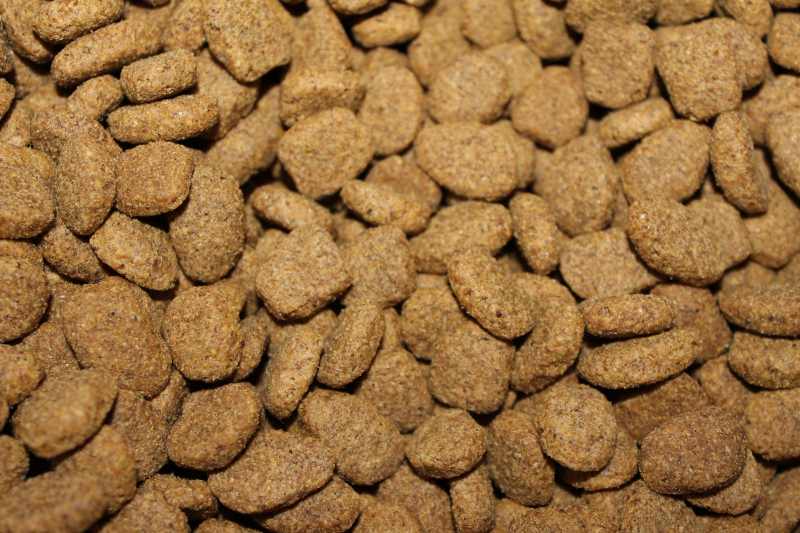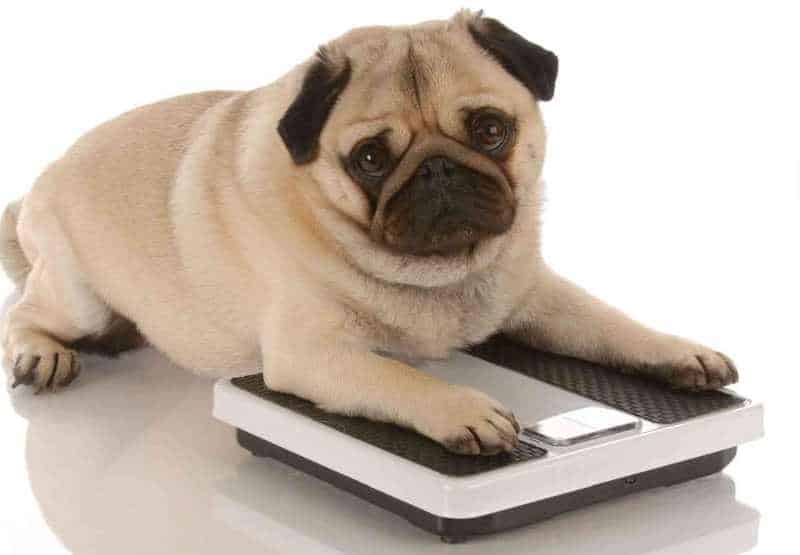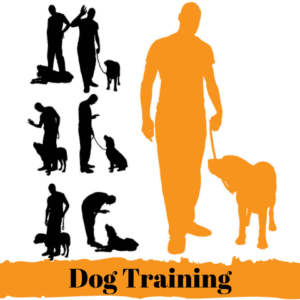Congratulations on your new puppy! The first few days can be pretty overwhelming and with so many products, information and gadgets it can be hard to make sense of it all.
Although choosing what puppy to get might have been an easy decision, choosing the right food to feed him might be a bit harder.
You could stand for hours in the dog food aisle in a supermarket…and walk out with less of an idea of what to buy than when you walked in there. So, to help break it down for you and guide you through your puppy nutrition journey we have put together some tips.
Remember: your veterinarian is there for any questions or concerns you have about your puppy and their nutrition.
How Much Food Should I Give My Puppy?
Your puppy’s food should have a feeding guide on the packet. Use this as a starting point when figuring out how much food to give your puppy.
However, nutritional requirements can vary so much depending on metabolism, age, breed, exercise levels, and even the temperature! This is why my number one tip when determining portion size is to watch your dog, their condition, and feed accordingly.
How Often Should I Feed My Puppy?
If you’re a parent you will be all too familiar the constant feeding required for a new baby! Luckily for you, your puppy won’t need you to set a midnight alarm.
However, they do need small, regular meals throughout the day. These needs change over their first few months of life and vary depending on breed, have a read here (link to puppy feeding schedule) for the right schedule for your pup.
Is It Worth It to Buy the More Expensive Stuff?
We all love a bargain, and it may be tempting to choose one of the many cheap dog food diets out there. However, I strongly recommend you invest in good quality food.
Premium dog food is formulated by experts to ensure it is carefully balanced and provides your dog with all the nutrients they need.
I am a strong believer that nutrition is essential for a healthy life.
It makes sense, good quality food nourishes your puppy’s body, from the immune system to muscles and coat, even brainpower. An optimal diet gives your puppy the energy to run, play, learn and retain the knowledge!
If that hasn’t convinced you, compare the feeding guidelines between a budget and premium food. In many cases, the premium food has higher nutritional density. This means less is required in each meal than a budget food that is often packed with fillers.
Choosing Between Wet and Dry Food

As if choosing a pet food brand wasn’t hard enough, there are wet food and kibble to choose between too! I recommend choosing a kibble for the majority of your puppy’s nutrition. Kibble is cost-effective, able to provide a complete and balanced diet, and can even act as a scraper to keep teeth clean. While canned food is usually a yummy treat, they are often full of water and do not provide complete nutrition. Many owners opt to give their pup a spoonful of canned food in the evenings, as a tasty addition to their meal.
Food For Big Puppies and Little Puppies
It’s easy to disregard diets tailored to different breeds as a marketing ploy. But, in actual fact, these diets are one of the best ways to make sure your puppy is getting everything it needs.
Compare a Great Dane puppy to a Chihuahua: it’s no wonder that their requirements are so different! The wee chihuahua will probably reach their adult size by as young as 8-12 months! On the other hand, the Great Dane will be growing until well after a year old!
With this in mind, many pet food companies along with nutrition experts and veterinarians have formulated offer foods targeted at specific breeds.
While small breed foods may have higher fat, large breed puppy food has additives to support bone growth and reduce the development of skeletal problems caused by fast growth.
Eukanuba is one food company that creates a range of foods, specially formulated for different breeds, making sure every puppy is given the best start.
Keep Your Puppy At Optimal Weight

You can improve your puppy’s chances of a healthy, long life is by keeping them at an optimal weight. Obesity can lead to all kinds of health problems such as diabetes, heart disease, and arthritis.
The keys to a healthy weight are simple:
Good Nutrition AND Exercise
So, make sure to get out moving with your pup regularly. Exercise is not just good for the body but also the mind. In fact, regular exercise increases trainability and decreases behavioral problems: it’s a win/win!
Hold The Treats…
Don’t let those puppy dog eyes fool you. No matter how longingly your pup may be looking at you, they really don’t need scraps off your plate. A sneaky bit of cheese may not seem like much, but it can actually be the equivalent of us eating two whole hamburgers!
If you really want to share with your pup – choose healthy snacks to share such as carrot. Or; whip up some special canine treats with one of our easy homemade treat recipes.
How to Switch from Puppy Food to Adult Food
Puppy food is specially formulated to support a growing pup which means lots of good proteins and fats. Although these are the perfect ingredients for a growing pup, feed this to an adult dog and you may end up with a hefty hound.
When it becomes time to switch your puppy to adult food make sure the switch happens gradually over a few days. For more info on how (plus how to know when it is time to change) read here (When Should My Puppy Move To Adult Food? article)
Kibbles ‘n Bits Original Savory Beef & Chicken Flavor Dry Dog Food
Feeding Schedule For Your Puppy
A feeding schedule for your puppy is the perfect way to provide your puppy with the nutrition they need, support potty training, and monitor food intake.
Your puppy should be fed a puppy-specific diet to support the immune system, growth, brain development, and bones.
Feeding time is more than just mealtime for your pup. It is the perfect opportunity to showcase new skills, such as “sit” and “wait”.
Choose a feeding spot for your puppy where they will be comfortable, ideally away from the hustle and bustle of the household.
8 weeks to 6 months
Ideally, your new puppy will need to eat 3 times a day, morning, midday, and evening. This might seem like a lot, but as your puppy is growing and learning they require regular nutrition. Smaller meals are easier for your wee pup to digest and regular feeding prevents falls in energy.
If possible your puppy should be fed at the same time every day, with a potty break afterward!
6 months on
Once your puppy is 6 months old your puppy can be fed twice daily, breakfast and dinner. Once again, I recommend trying to stick to the same time per day.
Feeding schedules also support house training, your puppy should always be taken out to go potty after a meal. On top of this, your puppy should be taken out prior to and straight after being in his crate, after exercise, and around 15 minutes after having water.
The Benefits of a Schedule over “Free Feeding”
Free feeding, or leaving food out so your puppy can help themselves is not something I recommend. One of the reasons is the fact that puppies often lack impulse control, and will eat past the point of fullness!
Another reason is that it is essential to note any changes in your dog’s appetite. If you feed your puppy every day at the same time, you will notice if they suddenly refuse to eat. Lack of appetite is one of the first signs of illness, so spotting it sooner, rather than later is essential.
Plus, if your household is anything like mine, leaving a bowl of dog food down all day will probably lead to your toddler eating more of it than your puppy.
One of the most helpful things you can do for your new puppy is to establish a regular feeding schedule.
Related Articles
>> What Can Dogs Eat Besides Dog Food
>> How to Stop A Dog From Begging For Food
>> What Is The Best Food To Feed My Dog
>> What Foods Are Toxic To Dogs
